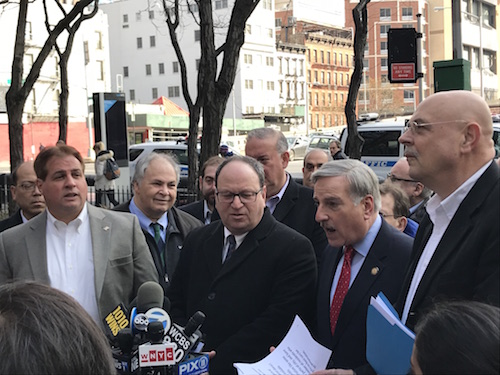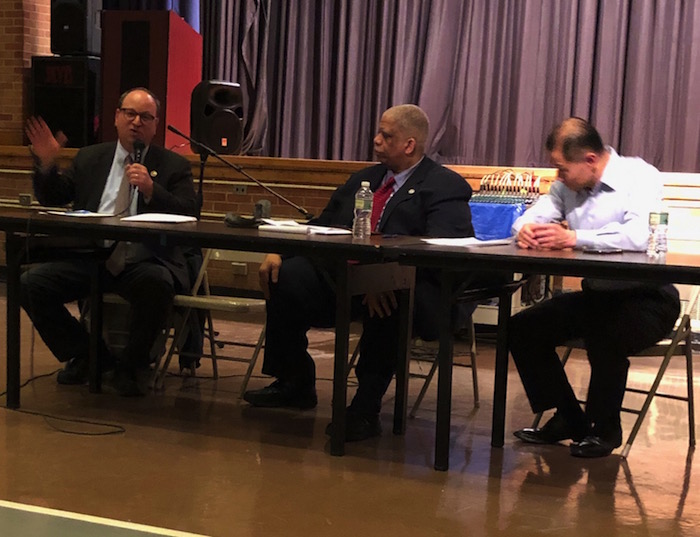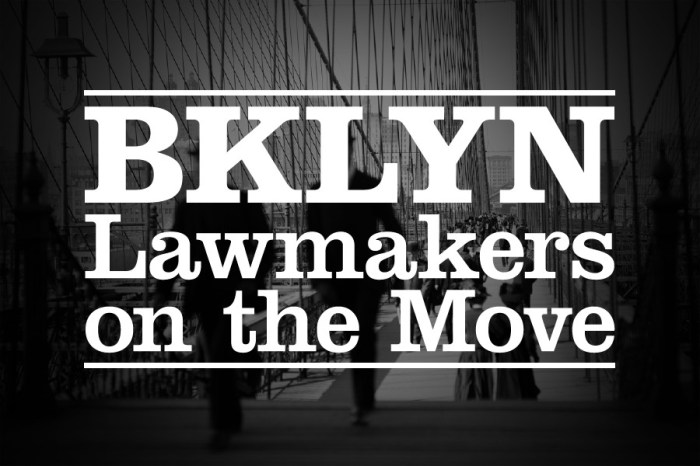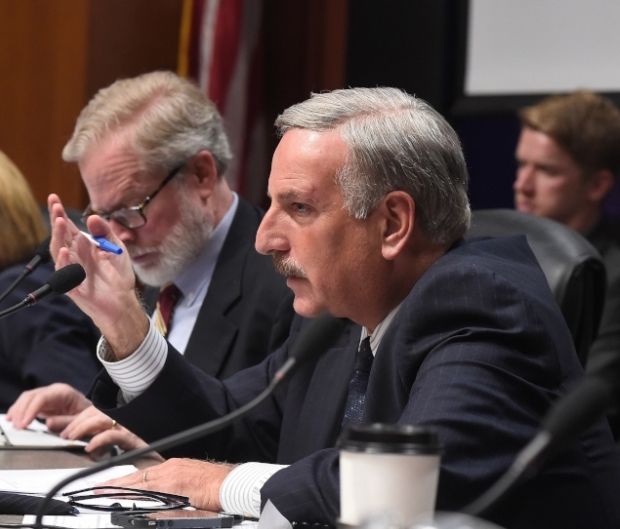State Assemblyman David I. Weprin (D-Richmond Hill, Fresh Meadows) and City Councilman Barry Grodenchik (D-Bayside, Bellerose, Douglaston, Floral Park, Fresh Meadows, Oakland Gardens) on Sunday joined the Queens Civic Congress, Queens Chamber of Commerce and other concerned outer borough residents to express strong opposition to Gov. Andrew Cuomo‘s new congestion pricing proposal.
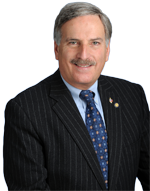
The proposal comes out of Fix NYC Advisory Panel tasked with advising the state on proposals to create a dedicated funding stream for mass transit and to reduce traffic on New York City Streets.
The panel recommended to implement a congestion charge for vehicles entering Manhattan’s central business district and use that funding to fix the subway system.
Under the plan, passenger vehicles would see a $11.52 toll charge and trucks would see a $23.34 toll charge to drive in sections of Manhattan.
“There is no doubt that we must finally address the undeniable, growing problem of traffic congestion in Manhattan’s central business district and present a real, feasible plan that will pass the legislature to raise money for MTA improvements, without raising rider fares,” said Cuomo of the plan.
“A uniform pricing model for FHVs (for Hire Vehicles) that discourages continuing presence in the central business district and incentivizes trucks to deliver on off-peak hours is a necessary component,” he added.
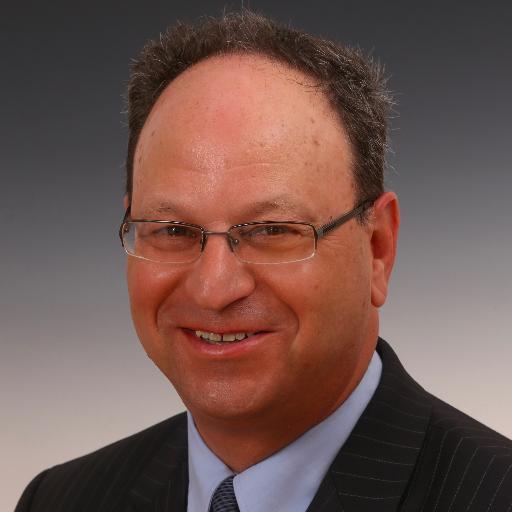
But Weprin and Grodenchik argued called the congestion pricing plan a regressive tax in the form of tolls that will impose an unacceptable burden on outer borough residents and businesses, who already pay millions in parking fees, vehicle registration fees, and other associated taxes in addition to being targeted by the recently passed federal tax plan, for the benefit of those who have the means to choose to reside in the center of the city.
“Congestion pricing would be disastrous for Queens, Brooklyn and Long Island residents. The tolls would inadvertently place a tax middle class communities and small businesses in these areas and raise the cost of goods and services from these areas while also limiting the competitive ability of local businesses. On top of that, private drivers who rely on the free bridges would have to pay each and every time they travel into the city, in addition to the vehicle registration fees, fuel taxes and other garage fees charged to New York City drivers” said Weprin.
“New York cannot afford to break the backs and empty the wallets of its outer borough locals to ‘Fix NYC,’” he added.
Grodenchik said for too long government has chosen to underfund the mass transit system, and now to make up for its lack of investment, the state is proposing a regressive tax that will fall squarely on the shoulders of hard working New Yorkers.
“If this wrong-headed plan is implemented and “successful,” traffic speed in the core area of Manhattan will still be less than 6 mph which is a bill of goods I am not interested in buying. We need to invest in and improve our mass transit system, not add more regressive taxes on New Yorkers struggling to get by,” said Grodenchik.
Wepren’s press conference drew criticism from the pro-transit organization Riders Alliance, who accused Weprin of standing up for the few people who are rich enough to drive and park in Manhattan while ignoring the needs of the vast number of working and middle-class New Yorkers who rely on the subway and buses.
“We’re demanding that Assembly Member Weprin stop grandstanding at the expense of struggling New Yorkers and be part of the solution instead. Our elected officials represent millions of transit riders, and they’d better start acting like they care about our needs,” said Rebecca Bailin, Campaign Manager for the Riders Alliance.
But the non-partisan watchdog group Reclaim New York called congestion pricing yet another massive new tax on New Yorkers.
“It would pass the bill for the MTA’s perpetual waste and management, and the Governor’s pass-the-buck


